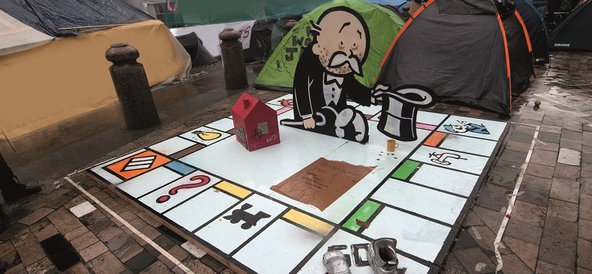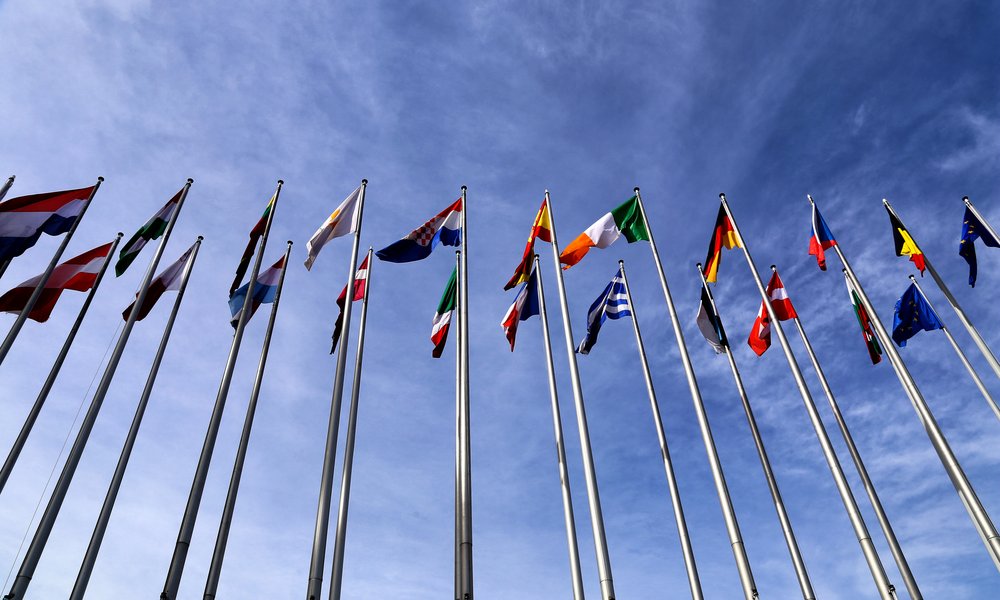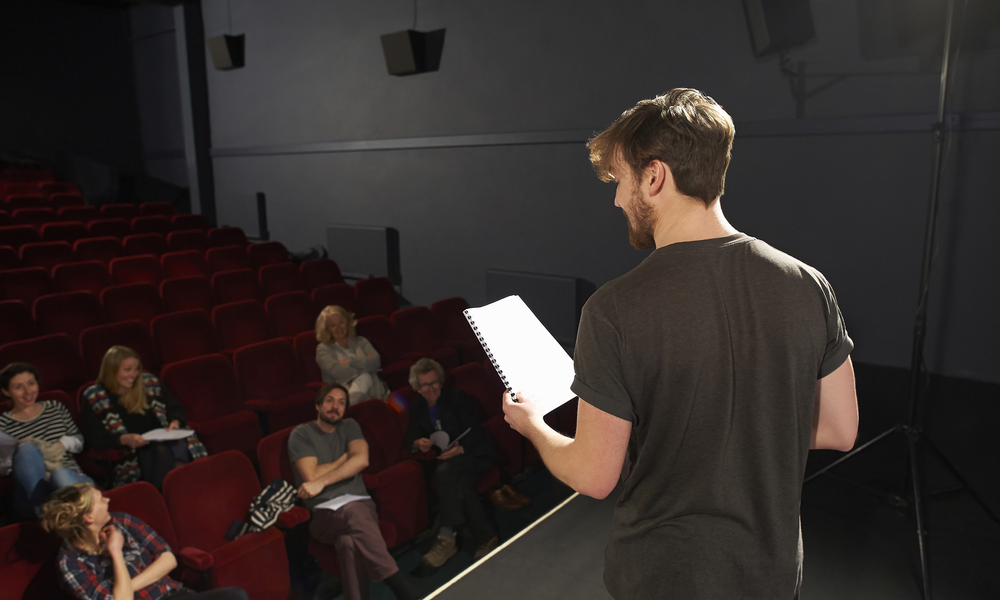News
British Academy Debates to explore inequalities
16 Aug 2016
The British Academy will explore the issue of inequalities in the next series of British Academy Debates during autumn 2016.
These free events will bring together leading minds from the humanities and social sciences
to discuss how differences in wealth, access and opportunity affect individuals, societies and economies.
Professor John Bell QC (hon.), FBA, lead Fellow for the British Academy Debates, said:
“Inequality has grown in recent years at home and between different parts of our world. It is a threat to the kind of just world in which we want to live, as well as to peace and stability.
The British Academy Debates are a chance to hear how the humanities and social sciences can help us meet the challenges which inequality presents. It is particularly fitting that this year, the British Academy Debates gain an international platform for the first time, with a debate in Brussels on improving job quality.”
At debates in London, Edinburgh and Brussels, academics, commentators and journalists will explore:
• What impact does inequality have on economic prosperity?
• Can a democratic society exist alongside an economic system where there are great differences in wealth?
• Is the rise in low-skilled, low-waged jobs a cause for concern for companies, society and the economy?
• How can nations realise the UN Sustainable Development Goals, creating equality and opportunities for all?
The British Academy Debates take place in Edinburgh (4 October), London (19 October and 29 November) and Brussels (8 November).
Other events in the series include a talk by founder of the ‘Everyday Sexism’ project, Laura Bates, on her new book, Girl Up, a discussion about how we can improve internship culture, and the third in the British Academy’s ‘Thinkers for our Time’ series, focusing on Thomas Malthus.
All events are free to attend, although registration may be required. You can see the full events programme at www.britishacademy.ac.uk/inequalities.
Full listings below:
Tuesday 4 October, 6-7.30pm
British Academy Debates: Inequality: Good for the rich, bad for the economy?
The Royal Society of Edinburgh, 22-26 George Street, Edinburgh, EH2 2PQ
What impact does inequality have upon a nation’s economic prosperity? Are big disparities in wealth and income a sign of a strong and healthy economy and society, or do they hinder economic growth and sustainability? Join a panel of experts as they discuss these issues.
Organised in partnership with the Royal Society of Edinburgh.
Free, please register online: www.britishacademy.ac.uk/inequality-good-rich-bad-economy
Wednesday 19 October, 6.30-8pm
British Academy Debates: Can reversing inequalities revive politics?
The Royal Society, 6-9 Carlton House Terrace, London, SW1Y 5AG
Tension between the equality of voting rights and the distribution of wealth can emerge in different ways. But how far can this tension be contained if inequality rises? And can current problems of democracy, like declining voting participation, be partly attributed to growing inequality?
Free, please register online: www.britishacademy.ac.uk/can-reversing-inequalities-revive-politics
Tuesday 8 November, 6-7.30pm
British Academy Debates: Decent wages, decent work: how can we improve job quality in Europe?
Académie royale des Sciences, des Lettres et des Beaux-Arts de Belgique, Rue Ducale 1, 1000 Brussels, Belgium
Employment in Europe has become increasingly polarised into high- and low-skilled work. With more people forced into low-paid, temporary or part-time positions, what are the implications for their lives and wellbeing? Should the worst affected, often the young and migrants, accept that any job is better than no job? Or is poor quality employment a cause for concern for companies, society and the economy?
Organised in partnership with the Académie royale des Sciences, des Lettres et des Beaux-Arts de Belgique.
Free, please register online: www.britishacademy.ac.uk/decent-wages-decent-work-how-can-we-improve-job-quality-europe
Tuesday 29 November, 6.30-8pm
British Academy Debates: Reducing global inequality: how do we achieve a fairer world?
The Royal Society, 6-9 Carlton House Terrace, London, SW1Y 5AG
The UN’s Sustainable Development Goals aim to transform the world for the better by 2030. Closely interlinked, these 17 goals cover a range of issues - from reducing inequality within and among countries to achieving gender equality. How do nations realise this vision of a shared future with equality and opportunities for all?
Free, please register online: www.britishacademy.ac.uk/reducing-global-inequality-how-can-we-achieve-fairer-world
Other events
Wednesday 28 September, 6-7.15pm
Keynes Lecture in Economics
Globalisation and inequality
The British Academy, 10-11 Carlton House Terrace, London, SW1Y 5AH
The causes of rising income inequality have been debated for 20 years. Recent research is shedding new light on the role of globalisation in shaping inequality. This lecture by Professor Elhanan Helpman FBA (Harvard University) will start with a historical account, and end with the most recent insights.
Free, no registration required. For more information, visit www.britishacademy.ac.uk/globalisation-and-inequality
Thursday 29 September, 6-7.30pm
Thinkers for our time: Thomas Malthus
The British Academy, 10-11 Carlton House Terrace, London, SW1Y 5AH
In 1798 Thomas Malthus’ An Essay on the Principle of Population was published. Over 200 years later, many of the issues at the heart of it are still prevalent in our society. What influence has his work had since it was first produced? Does his thinking still have a place in modern society and the issues we face in tackling social, economic and political inequalities? This event is the third in the British Academy’s ‘Thinkers for our Time’ series.
Free, please register online: www.britishacademy.ac.uk/thinkers-our-time-thomas-malthus
Monday 17 October, 6-7.30pm
All work, no pay: Generation intern
The British Academy, 10-11 Carlton House Terrace, London, SW1Y 5AH
For many young people, the internship has become the route into professional work. Yet the work is temporary, largely unregulated and often unpaid, leading critics to question whether the practice is exploitative. How might we envisage new models for internship culture, what might they look like, who could benefit and what potential might be realised as a result?
Organised in partnership with The Culture Capital Exchange.
Free, please register online: www.britishacademy.ac.uk/all-work-no-pay-generation-intern
Friday 9 December, 6-7.30pm
Laura Bates: Girl Up
King's College London, Strand Campus, Strand, London, WC2R 2LS
Leading journalist, author and founder of the Everyday Sexism blog, Laura Bates, speaks about gender inequality and her new book, Girl Up.
Free, please register online: www.britishacademy.ac.uk/laura-bates
Latest news
Contact the press office
For further information contact the Press Office on [email protected] / 07500 010 432.


